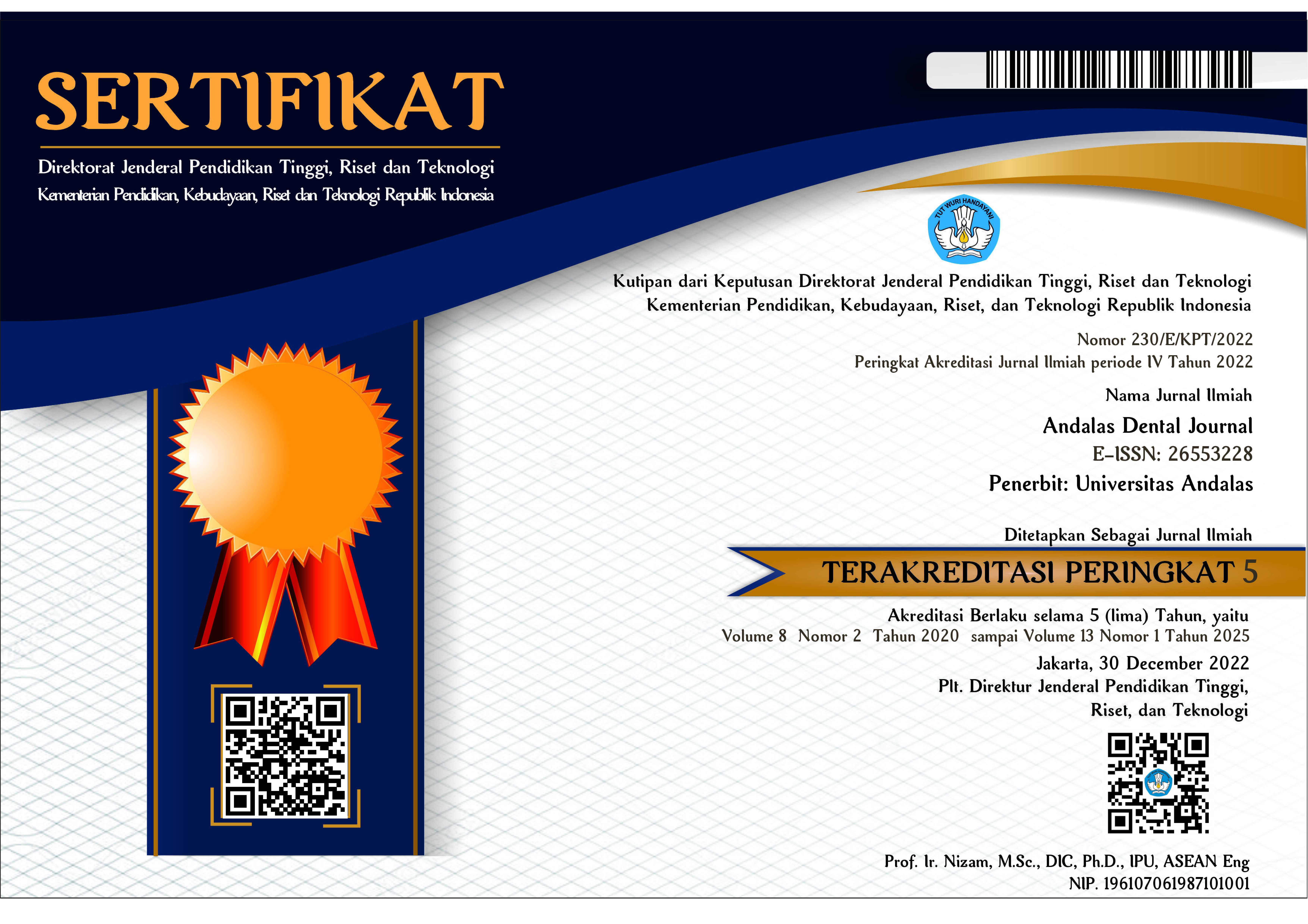Potensi Antibakteri Triphala Sebagai Bahan Irigasi Saluran Akar Terhadap Bakteri Enterococcus faecalis
Abstract
Background: Root canal treatment aims to maintain the infected tooth so that it can be accepted biologically by the surrounding tissue. One of the important step in root canal treatment is root canal irrigation. Enterococcus faecalis is the most common bacteria found in cases of failure root canal treatment. The ideal root canal irrigation material should have antibacterial properties. Triphala contain several phytochemicals such as citric acid, flavonoids, tannins, alkaloids, and quinones which are effective as antibacterial agents. Purpose: To explain the antibacterial potential of triphala as a root canal irrigation against Enterococcus faecalis bacteria. Method: Based on sources obtained from journals, textbooks, and websites accessed through the Google Scholar database, PubMed, Research Gate, dan NCBI. The types of references taken are in the form of research reports, literature studies, published from 2012–2021. Conclusion: Triphala has potential as an alternative material to root canal irrigation because it is proven effective in eliminating Enterococcus faecalis bacteria compared to other herbal material. Other studies have proven that triphala is not better than non-herbal materials, although there are several studies that say equal or otherwise.
Copyright (c) 2022 Rina Permatasari, Desti Suci Wulandari

This work is licensed under a Creative Commons Attribution-ShareAlike 4.0 International License.















